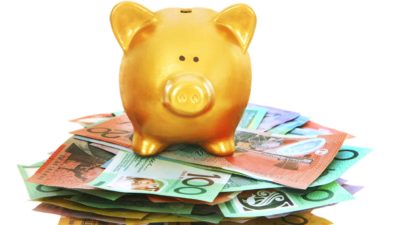It turns out the tweet might just be mightier than the sword, at least when said tweet comes from the President of the United States.
True, this particular one came with a sting in the tail: the announcement of a massive escalation in tariffs. Unless something changes in the meantime, US$200 billion worth of imports from China will now have 25% added to the price, up from 10% currently.
(Never mind that tariffs are a tax on the people buying the products, pushing up the price. That seems either lost, or insignificant, for the US president.)
Markets shook and shuddered yesterday around our region as investors tried to digest the news.
Frankly, I'm surprised anyone was surprised.
Whatever you think of Donald Trump, it's not like his negotiating style is a surprise. He doesn't believe in 'win-win' outcomes and will press home his advantage whenever he can. To imagine that the trade talks were going to go smoothly to their conclusion was folly in the extreme.
This negotiation, perhaps more than any for half a century, is one in which the US (in particular) isn't looking for a mutually beneficial outcome. This is a clash of egos, where winning the self-created fight is more important than the economic consequences.
How can I tell?
Because of the continual dummy-spitting and the complete lack of a long term focus. That, plus an absence of understanding (or at least acknowledgment) that the losers here are US consumers who end up paying more.
How much are steel and manufacturing jobs worth? $50 billion and counting, apparently, based on the increased tariffs that US consumers will pay.
I don't know if it's a lack of understanding, the victory of ego over common sense, or cynical politics. Perhaps it's all of the above. In any event, whatever victory is achieved may well be a pyrrhic one.
Of course, Trump might just be boxing clever. Maybe he does get the Chinese to blink. Perhaps they do need it more than he does, and they'll fold. Time will tell.
But, as I said, no-one should be surprised that we're back at this point.
I was surprised, not by the tweet, but by the market's response. Some investors and traders, it seems, believed the good press, and forgot that any time you ignore the potential for bad news, you open yourself up to share price volatility.
Which is what we got yesterday.
Today? So far, it seems that the market has shaken off its worries. Of course, the RBA is yet to make public its view on interest rates. That'll be this afternoon.
And then, depending on the decision, markets will do what markets do.
What's that, you ask?
Why what they always do:
Engage in collective amnesia about the nature of investing.
Think short term.
Respond to the latest headline, rumour or, yes, tweet.
Swing wildly from exuberance to despair and back.
You'd think a bunch of preschoolers were in charge, frankly.
If professionals in any other field acted the way some finance professionals do, they'd be run out of town.
But in finance? It's just what happens.
What did Pascal say, again?
"All of humanity's problems stem from man's inability to sit quietly in a room alone."
Quite.
Long term investing is the opposite of all that. It knows that prices are volatile. That economies have cycles. That, while participants pretend otherwise, emotions rule the markets, more often than not.
Want to play the RBA guessing game? Be my guest. It's fun.
Want to speculate on a failed reality TV presenter who ended up in the Oval Office? Good luck.
But don't confuse that with investing unless you know, for sure, that such an effort will materially impact the long term fundamentals and value of the companies you're investing in.
They don't? I didn't think so.
If you're looking for me, I'll be sitting in a metaphorical room, quietly and alone.
Why not join me? It's not as exciting, but I wager it'll be a helluva lot more profitable.








